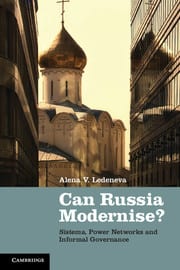Eastern Ukraine: Is there a way back from violence?
By Sean L Hanley, on 23 April 2014
With violent deaths becoming an everyday occurrence in eastern Ukraine and the Geneva deal fading, Rasmus Nilsson asks whether there is a way back to stability and peace.
When Ukrainian tanks rolled into Slavyansk last week, only to be mobbed and stopped by civilians and (Russian?) militiamen it did not represent the finest hour of the Ukrainian army. However, in their seeming incompetence the Ukrainian armed forces did manage to hold fire. Ukraine lost equipment, but no soldiers, or civilians lost their lives. In its own muddled way, the ‘battle for Slavyansk’ indicated that Russians and Ukrainians might be able to resolve the situation gradually, with threats but no deaths.
Now, blood is starting to be shed. Recently, pro-Russian militiamen were shot and killed in a murky firefight and the tortured body of what appears to be a pro-Ukrainian politician, from the Prime Minister’s party has now been found. It remains unclear precisely what happened to Volodymyr Rybak outside Slavyansk, but his fate may spur events on.
It is possible that militias killed Mr Rybak to provoke open conflict with Ukrainian troops. It is also possible, if unproven, that the militias were spurred on by figures in the Russian regime. For now, Russia is not commenting on this murder and, indeed, is keeping fairly quiet in what could be either anticipation or confusion.
Prime Minister Dmitrii Medvedev has, once more, stressed that Russia can overcome any Western sanctions and that business and ordinary citizens should be kept free from political shenanigans. UN Ambassador Vitalii Churkin, meanwhile, seems unsurprised that tensions will take a while to die down – and, following the recent UN report dismissing claims of systematic threats to Russians in Ukraine, now wants the UN removed from eastern Ukraine. Apparently, the OSCE is now expected to stop any unrest that may appear, together with the Ukrainian conscience or some such. (more…)
 Close
Close




